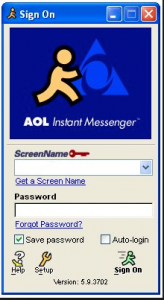“You kids don’t know how to have real conversations anymore”, “You spend so much time playing on that cell phone of yours”, “You aren’t going to know how to express yourself in the real world after all that texting.” Thes e are things that I’m sure almost all of us have heard at some point, whether it be from our parents, grandparents, teachers, or maybe even that annoying aunt; but regardless of whoever had said it, there is a good chance that they were most likely a great deal older, having grown up in a generation that was not as heavily reliant on technology as ours is today. Now, it is very easy to just brush off these comments, as most kids our age, and teens especially, clearly know everything. And of course, what would these older folks know? They didn’t have technology like this. They’re obviously just stating that we’re wrong because our lifestyle varies so
e are things that I’m sure almost all of us have heard at some point, whether it be from our parents, grandparents, teachers, or maybe even that annoying aunt; but regardless of whoever had said it, there is a good chance that they were most likely a great deal older, having grown up in a generation that was not as heavily reliant on technology as ours is today. Now, it is very easy to just brush off these comments, as most kids our age, and teens especially, clearly know everything. And of course, what would these older folks know? They didn’t have technology like this. They’re obviously just stating that we’re wrong because our lifestyle varies so much from what theirs once was.
much from what theirs once was.
Here’s a crazy idea…maybe their criticism actually isn’t completely wrong this time, maybe we are in fact lacking in the social skills that they had when they were our age. Yeah so maybe you would rather sit on the couch at a family gathering and text your friends about how bored you are, or it could be less nerve-wracking for you to text your crush rather than asking them on a date. But if you really think about these things, they’re kind of sad because you are potentially allowing yourself to miss out on so many little things, like the joy of laughing with your friends instead of typing “LOL” while you actually maintain a straight face. Even though thes e things may make me sound like a grandma, I would like to point our that there are plenty of studies that prove that this concept is actually true.
e things may make me sound like a grandma, I would like to point our that there are plenty of studies that prove that this concept is actually true.
One study in particular held by UCLA included sixth graders whom were separated from their devices and had no choice but to interact with each other during a week of summer camp. These children were occupied with other social activities; they had no choice but to interact with one another. Meanwhile, the control group whom did not have their devices taken away maintained their usual interactions with social media. The end result proved that the children who did not have any contact with their technological devices showed an increased understanding and capability of identifying emotions; the control group essentially remained the same. Yes it’s true that these are only children, but these children are at at point in their lives where that are capable of understanding complex human reactions. Similar studies on adults proved to have similar results as well.
Maybe parents should monitor their children’s access to social media m ore so to avoid these situations? Unfortunately there are a lot of difficulties regarding this possible solution. Today’s society is so heavily reliant on technology that, even if the child’s technology use is limited at home, their education will now heavily rely on it as well. Today’s children are learning how to do essentially everything with technology. Yet, this is not necessarily a bad thing either, because by the time these kids are our age, they’re going to appear as if they’re miniature Einstein’s. in our eyes when we are no longer up to date with all the modern technology. This is very important because at the rate the world is going at, we are probably going to have hover cars in the near future.
ore so to avoid these situations? Unfortunately there are a lot of difficulties regarding this possible solution. Today’s society is so heavily reliant on technology that, even if the child’s technology use is limited at home, their education will now heavily rely on it as well. Today’s children are learning how to do essentially everything with technology. Yet, this is not necessarily a bad thing either, because by the time these kids are our age, they’re going to appear as if they’re miniature Einstein’s. in our eyes when we are no longer up to date with all the modern technology. This is very important because at the rate the world is going at, we are probably going to have hover cars in the near future.
Technology is moving too fast to even make an attempt at avoiding using it. It’s literally everywhere. But knowing the possible strains it may cause on our social skills is very important. As long as we are aware of such issues I think that we could easily make time to not use technology for a little bit, maybe even do something crazy like have a small gathering with our friends as opposed to just texting in the group chat. Now that you’re done reading this I think you maybe turn off your computer, go outside, and take up a new hobby to try and make some new friends! (and try not to tweet about it)





